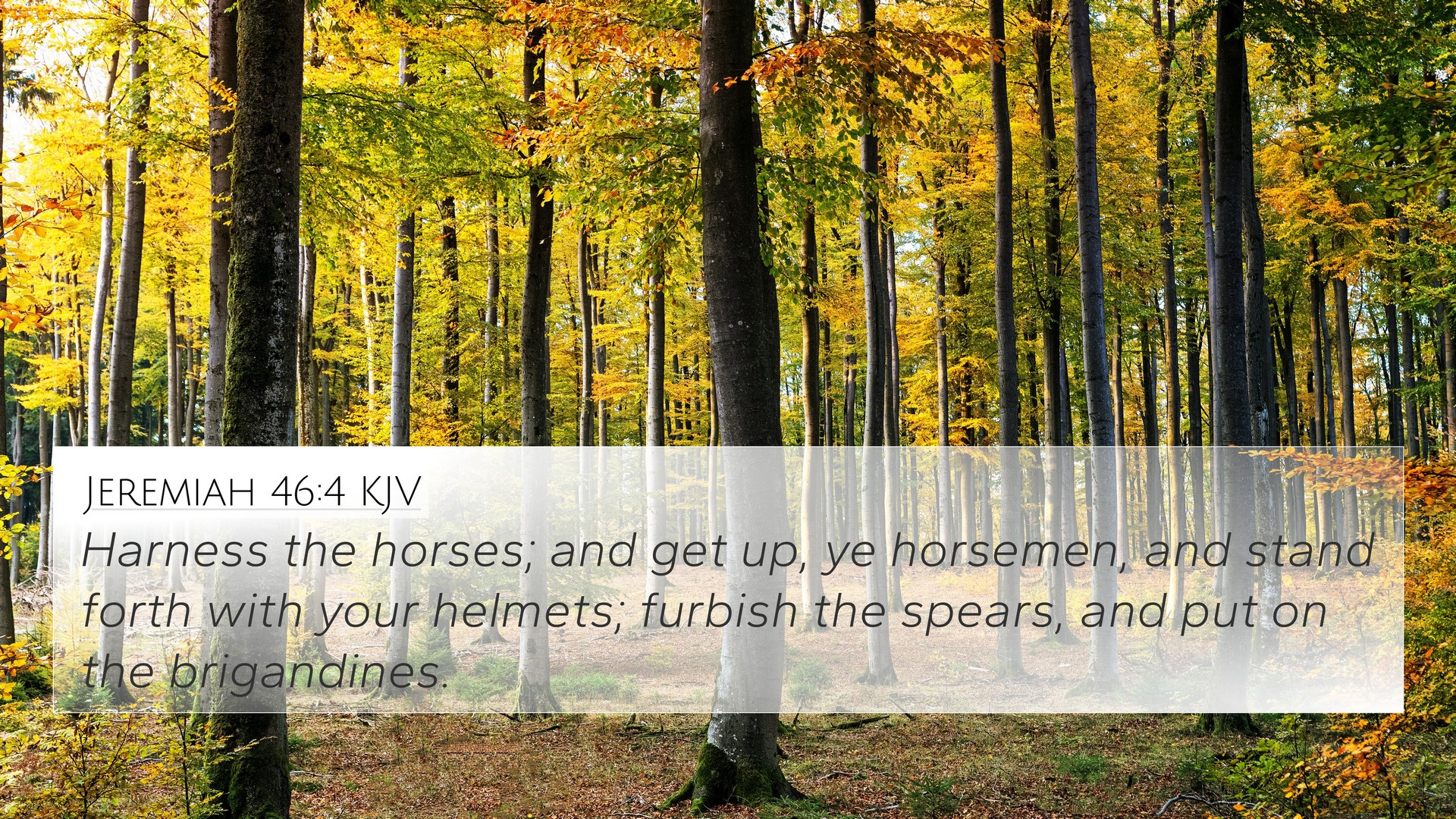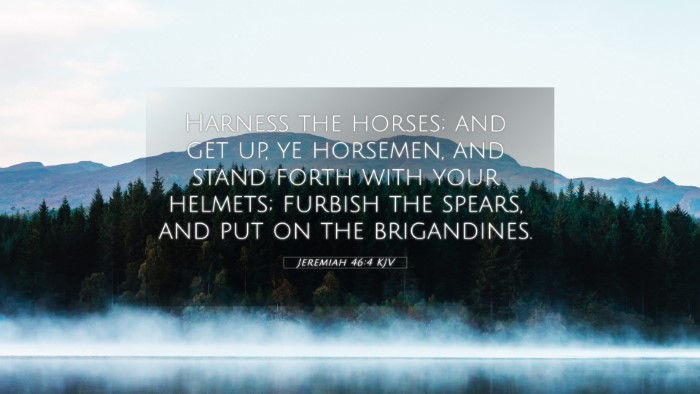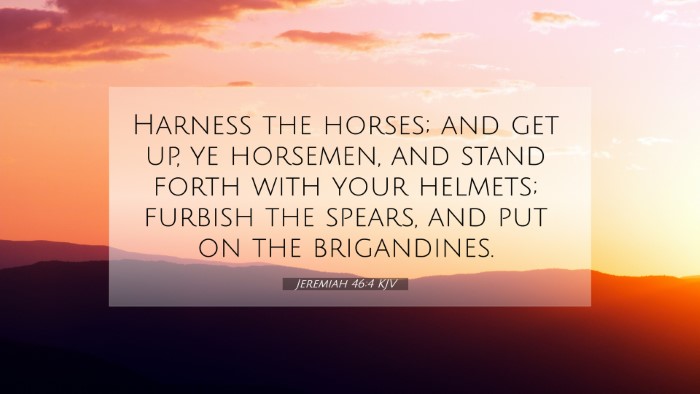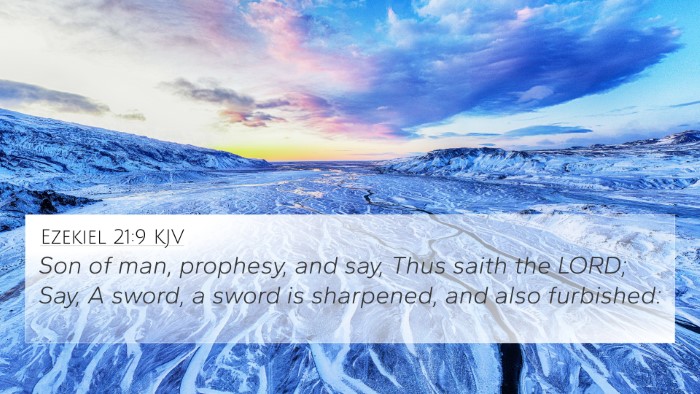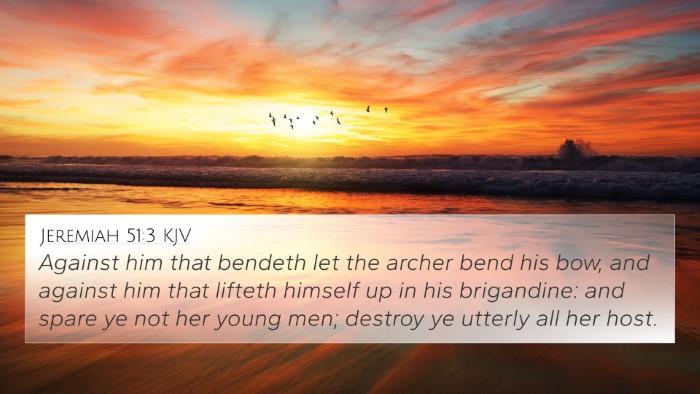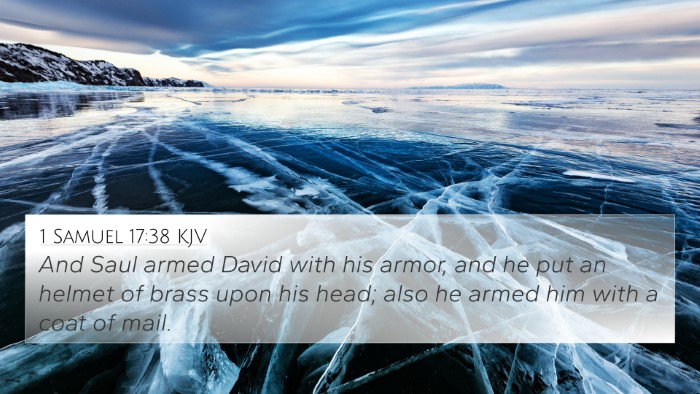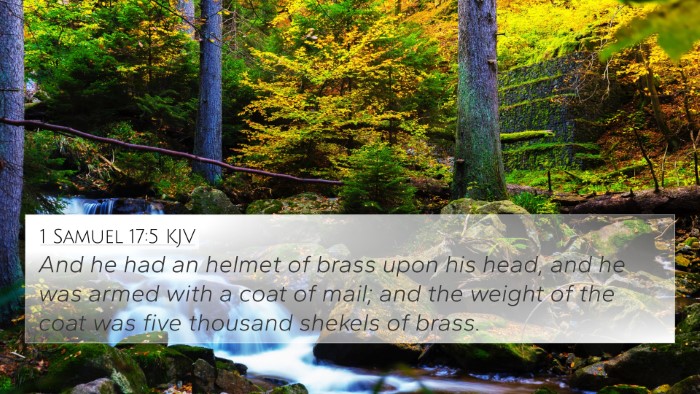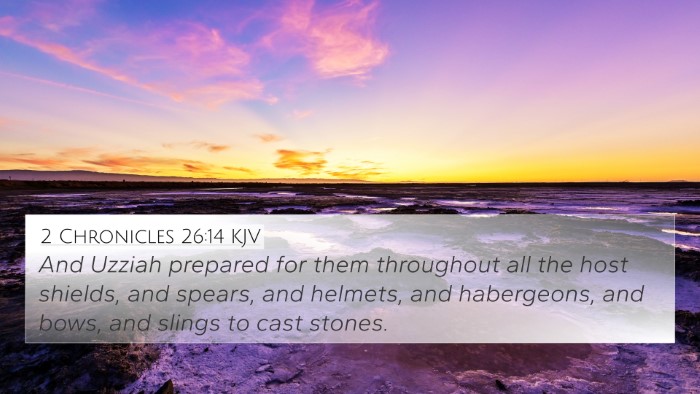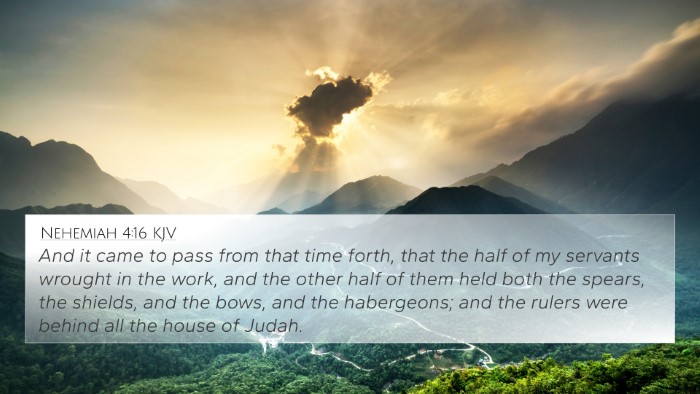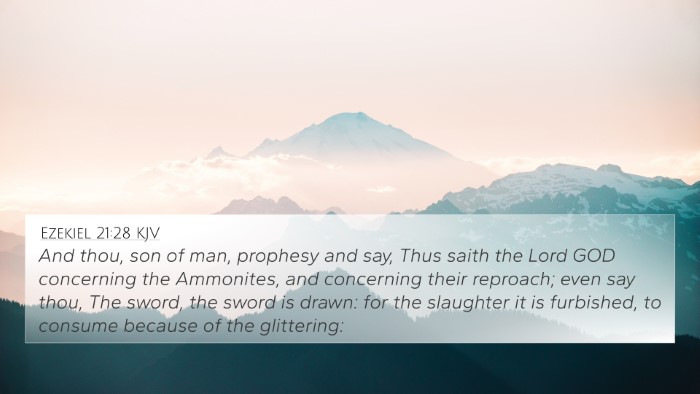Understanding Jeremiah 46:4
In Jeremiah 46:4, the Lord commands, "Prepare the buckler and shield, and draw near to battle." This verse is situated in a prophetic message concerning Egypt's impending defeat. It highlights both the impending physical confrontation and the metaphorical implications of divine judgment against the nations.
Contextual Significance
This verse occurs at a crucial juncture in the prophecy against Egypt, a nation that represented might and power during Jeremiah's time. The instruction to prepare for battle symbolizes the futility of Egypt's military strength against God's will. Matthew Henry notes that the preparations mentioned are not merely physical but also reflect Egypt's spiritual and moral state.
Interpretive Insights
- Military Preparations: The buckler and shield are instruments of defense, suggesting that Egypt is called to arm itself. However, the implication is clear: their defenses will not prevail.
- Divine Judgment: Adam Clarke underscores that this command serves to illustrate God's sovereignty. No amount of human preparation can thwart divine decree.
- Symbolism of Battle: This call to battle signifies more than physical conflict. It can be seen as a reflection of the struggle between good and evil, light and darkness. It shows the reality of spiritual warfare against the forces that stand opposed to God.
Bible Verse Cross-References
This verse connects with several other biblical texts that emphasize the themes of judgment, battle preparations, and the futility of standing against God:
- Isaiah 19:2 - "And I will set the Egyptians against the Egyptians; and they shall fight every one against his brother, and every one against his neighbor; city against city, and kingdom against kingdom."
- Ezekiel 30:4 - "And a sword shall come upon Egypt, and great pain shall be in Ethiopia, when the slain shall fall."
- Revelation 16:14 - "For they are the spirits of devils, working miracles, which go forth unto the kings of the earth and of the whole world, to gather them to the battle of that great day of God Almighty."
- Psalm 20:7 - "Some trust in chariots, and some in horses: but we will remember the name of the Lord our God."
- Proverbs 21:30 - "There is no wisdom nor understanding nor counsel against the Lord."
- Micah 5:10-11 - "And it shall come to pass in that day, saith the Lord, that I will cut off thy horses out of the midst of thee, and I will destroy thy chariots."
- Deuteronomy 20:1 - "When thou goest out to battle against thine enemies, and seest horses and chariots, and a people more than thou, be not afraid of them; for the Lord thy God is with thee."
Thematic Connections
Jeremiah 46:4 invites a deeper thematic exploration throughout Scripture:
- Spiritual Warfare: The verse parallels the New Testament teachings about the armor of God in Ephesians 6:11-17, where believers are also called to prepare for spiritual battle.
- Futility of Human Strength: This is echoed in 1 Corinthians 1:27-29, which explains how God often uses the weak things to confound the mighty.
- Divine Sovereignty: The proclamation in Isaiah 14:24-27 supports the notion that the Lord's plans cannot be thwarted by any earthly power.
Practical Application
For modern believers, Jeremiah 46:4 serves as a reminder of the importance of spiritual preparedness over mere physical or worldly strength. The call to 'prepare' is also reflected in the New Testament context where believers are instructed to stand firm in their faith.
Tools for Bible Cross-Referencing
To deepen your study of inter-Biblical dialogue and the connections between these verses, consider using:
- Bible concordance to look up related terms and themes.
- Comprehensive Bible cross-reference materials to uncover more scripture connections.
- Cross-reference Bible study methods to enhance your understanding of Biblical themes.
- Bible reference resources that compile verses on similar topics.
Conclusion
Jeremiah 46:4 serves as a profound reminder of God's ultimate authority, the nature of spiritual conflict, and the futility of reliance on human strength. Through cross-referencing this verse with others, we gain deeper insights into God's character and the overarching narrative of redemption throughout the Scriptures.
As you study, always reflect on how parallel verses inform and illuminate one another. What similarities arise from the call to prepare for battle in Jeremiah, and how does this resonate with New Testament teachings? The Bible is rich with interconnections that beckon deep exploration and understanding.
